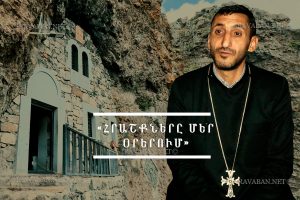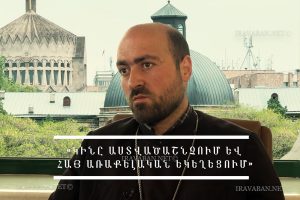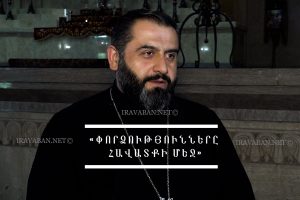Within the framework of the “Legal Scholars” series, we spoke with Mr. Tigran Markosyan, a member of the State Commission for the Protection of Economic Competition, Candidate of Juridical Sciences.
– You have worked for a long time in the “Center for Legislation Development and Legal Research” foundation of the Ministry of Justice, and also held the position of the director. What was the reason for leaving that position, how did you accept the offer to be a SCPEC member?
– Naturally, the functions and authorities of the SCPEC are quite interesting; it can really be considered a unique mixture of law and economics, in this respect I was quite excited, because I had the possibility to realize my opportunities in this field as well, and this field was important not only for the possibility and perspective of realizing or implementing legislative reforms, but also for participating in the sectoral, actual law enforcement process. For comparison, for example, my previous position in the Ministry of Justice did not have that opportunity directly and my activity there was mainly limited to participating in the legislative process. And that was one of the reasons.
– You have been working in the state system for years; do you not want to work in a private company?
– In fact, I did not work only in the state system, but it was variable. At first I went to work in the private sector, I was engaged in advocacy, then I went to work in the state system, in the Ministry of Finance, then I went back to the private sector, it is about the banking system, then I returned to a non-state, non-private fund you mentioned about, and after that I continue my service in SCPEC. At the moment I do not want to return to the private sector, thoughts may change over time.
– You are the author and co-author of a number of scientific publications. In your opinion, is science profitable in Armenia now? If not, what is the reason for that?
– To consider science profitable would actually be from the field of romance; the people who work here, whom I know mainly, can be said to be devoted to their work, in their free time, but at the expense of possible works, we have certain works, publications, etc. In this context, science, unfortunately, at least in the field of law, I can say that law cannot be considered profitable.
– Mr. Markosyan, in 2020 together with the Vice-Rector of the Academy of Justice Anahit Manasyan you published a scientific article on the topic “Legal content of autonomy and peculiarities of autonomous bodies in RA“. We know that the concept of an autonomous body was introduced after the 2015 amendments to the Constitution, particularly in Article 122. What have you come to as a result of this research? In your opinion, can it be an autonomous body when it is formed as a result of the deputies’ vote? For example, the Commission for the Prevention of Corruption is such a body, can it be considered independent?
– Mrs. Manasyan and I had discussions about the constitutional legal status of autonomous bodies, their peculiarities, and the guarantee system many times. Then we decided to put the results of our discussions on paper and why not present them to the public. It was in this context that it was decided to write and publish this article.
The answer to the question whether autonomous bodies can be formed by appointment by the National Assembly, yes. The problem here is not only in the formulation, but also in a number of other guarantee systems; of course, after the appointment we have a guarantee system ensuring sufficient independence – structural, material, social, etc. functions.
– Let’s talk about the SCPEC. A number of amendments have been made to the “Law on Protection of Economic Competition”, which the President of the Republic has already signed and it will enter into force on 31May. Please briefly present the most obvious changes in the law.
– The institute of “group of persons” was substantially reformed in the context of the legislation on the protection of economic competition. A group of persons is a group of individuals and/or legal entities in which there is a connection, control, certain conditions provided by law. Why am I referring to this, because the group of persons, no matter how many entities they assume, is considered as one economic entity by the current legislation on “Protection of Economic Competition”. And what does it mean? It means that when discussing the issue of responsibility for one of them, it is possible to refer to everyone and apply a measure of responsibility to everyone.
In the context of the current legislation, this is the case, at least at the legislative level; of course, the commission has adopted a slightly different approach in practice. That is, the following is done: of course is true that it is a group of persons, but when discussing the issues of responsibility, only the behavior of those subjects, the income of those subjects that were related to a specific offense is considered. Although the legislation allows us to consider everyone in combination. This has already been transferred to another sphere of legislative regulation and after the entry into force, the SCPEC, which will already be called the “Competition Protection Commission“ and will be able to apply responsibility in the case of a group of persons only to specific entities involved in the violation.
Details about a number of other changes in the video
Alisa Chilingaryan
Vahe Vardanyan














